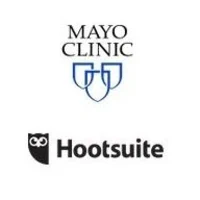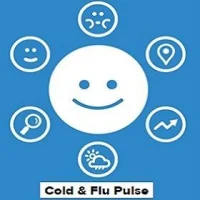As the baby boomers in healthcare leadership are starting to retire, some experts believe the generational transition in healthcare managers will bring profound changes. The incoming generation's preference for quick decisions and attachment to social media, the experts note, can be a good thing for healthcare management.
Baby boomers brought with them a management style that is focused on consensus. Boomers' obsession with consensus "derived from a profound ambivalence toward authority rooted in the anarchic 1960s," Jeff Goldsmith, PhD, associate professor of public health sciences at the University of Virginia, writes in an article published online in H&HN Daily. "To many young boomers, authority was often exercised in illegitimate ways. They vowed that when they ascended to leadership, things would be different."
Boomer managers feared making decisions that might negatively affect anyone, so they spent perhaps half of their professional lives in meetings. All too often, these meetings were badly run, with no clear goals or time limits. Avoiding accountability seemed to be the hidden agenda, according to Prof. Goldsmith.
"The meeting also was viewed as a way of fortifying senior managers against the steep costs of making a mistake," he writes. "Hospital and health system trustees may have perpetuated this approach by punishing failure more consistently than rewarding success."
This approach is expected to change under Generation X and Gen Y managers. In major part, it will change because of the internet, and particularly social media, says Prof. Goldsmith.
A wave of social media innovations has strengthened the online existence of Generations X and Y. First Facebook, and rapidly after, Twitter and Instagram, accelerated the trend toward continuous horizontal communication. Social media has abolished the distinction between downtime and uptime, between vacations and work, and between personal and professional spheres.
Today's boomer managers despair over a workforce that spends a quarter or more of their workday communicating with each other through social media, a phenomenon known as "cyberslacking."
However, the reality is that many younger people are working via social media interaction. Social media has replaced the water cooler as the hub of informal organisation and the way news and people issues are "processed."
Social media-supported, continuous, horizontal communication is a potential solution to healthcare's "death by meeting," notes Prof. Goldsmith. "There is no mystery what others are thinking, because feedback is often instantaneous."
The professor says present managers can assist in the transition to a more rapid-cycle, less meeting-intensive management style by embracing these new online tools. "They don't have to wait to retire, and can influence the succession of decision-positive younger execs," he adds.
Source: Hospital and Health Networks
Image credit: Flickr.com
Baby boomers brought with them a management style that is focused on consensus. Boomers' obsession with consensus "derived from a profound ambivalence toward authority rooted in the anarchic 1960s," Jeff Goldsmith, PhD, associate professor of public health sciences at the University of Virginia, writes in an article published online in H&HN Daily. "To many young boomers, authority was often exercised in illegitimate ways. They vowed that when they ascended to leadership, things would be different."
Boomer managers feared making decisions that might negatively affect anyone, so they spent perhaps half of their professional lives in meetings. All too often, these meetings were badly run, with no clear goals or time limits. Avoiding accountability seemed to be the hidden agenda, according to Prof. Goldsmith.
"The meeting also was viewed as a way of fortifying senior managers against the steep costs of making a mistake," he writes. "Hospital and health system trustees may have perpetuated this approach by punishing failure more consistently than rewarding success."
This approach is expected to change under Generation X and Gen Y managers. In major part, it will change because of the internet, and particularly social media, says Prof. Goldsmith.
A wave of social media innovations has strengthened the online existence of Generations X and Y. First Facebook, and rapidly after, Twitter and Instagram, accelerated the trend toward continuous horizontal communication. Social media has abolished the distinction between downtime and uptime, between vacations and work, and between personal and professional spheres.
Today's boomer managers despair over a workforce that spends a quarter or more of their workday communicating with each other through social media, a phenomenon known as "cyberslacking."
However, the reality is that many younger people are working via social media interaction. Social media has replaced the water cooler as the hub of informal organisation and the way news and people issues are "processed."
Social media-supported, continuous, horizontal communication is a potential solution to healthcare's "death by meeting," notes Prof. Goldsmith. "There is no mystery what others are thinking, because feedback is often instantaneous."
The professor says present managers can assist in the transition to a more rapid-cycle, less meeting-intensive management style by embracing these new online tools. "They don't have to wait to retire, and can influence the succession of decision-positive younger execs," he adds.
Source: Hospital and Health Networks
Image credit: Flickr.com
Latest Articles
healthmanagement, social media, internet, consensus, baby boomers, healthcare leadership
As the baby boomers in healthcare leadership are starting to retire, some experts believe the generational transition in healthcare managers will bring profound changes.










